Drug-based modulation of endogenous stem cells promotes functional remyelination in vivo
- PMID: 25896324
- PMCID: PMC4528969
- DOI: 10.1038/nature14335
Drug-based modulation of endogenous stem cells promotes functional remyelination in vivo
Abstract
Multiple sclerosis involves an aberrant autoimmune response and progressive failure of remyelination in the central nervous system. Prevention of neural degeneration and subsequent disability requires remyelination through the generation of new oligodendrocytes, but current treatments exclusively target the immune system. Oligodendrocyte progenitor cells are stem cells in the central nervous system and the principal source of myelinating oligodendrocytes. These cells are abundant in demyelinated regions of patients with multiple sclerosis, yet fail to differentiate, thereby representing a cellular target for pharmacological intervention. To discover therapeutic compounds for enhancing myelination from endogenous oligodendrocyte progenitor cells, we screened a library of bioactive small molecules on mouse pluripotent epiblast stem-cell-derived oligodendrocyte progenitor cells. Here we show seven drugs function at nanomolar doses selectively to enhance the generation of mature oligodendrocytes from progenitor cells in vitro. Two drugs, miconazole and clobetasol, are effective in promoting precocious myelination in organotypic cerebellar slice cultures, and in vivo in early postnatal mouse pups. Systemic delivery of each of the two drugs significantly increases the number of new oligodendrocytes and enhances remyelination in a lysolecithin-induced mouse model of focal demyelination. Administering each of the two drugs at the peak of disease in an experimental autoimmune encephalomyelitis mouse model of chronic progressive multiple sclerosis results in striking reversal of disease severity. Immune response assays show that miconazole functions directly as a remyelinating drug with no effect on the immune system, whereas clobetasol is a potent immunosuppressant as well as a remyelinating agent. Mechanistic studies show that miconazole and clobetasol function in oligodendrocyte progenitor cells through mitogen-activated protein kinase and glucocorticoid receptor signalling, respectively. Furthermore, both drugs enhance the generation of human oligodendrocytes from human oligodendrocyte progenitor cells in vitro. Collectively, our results provide a rationale for testing miconazole and clobetasol, or structurally modified derivatives, to enhance remyelination in patients.
Conflict of interest statement
The authors declare no competing financial interests.
Figures






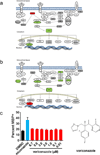
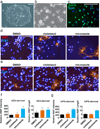
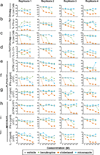


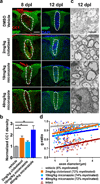
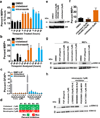

Comment in
-
Neurodegenerative diseases: Repurposing for remyelination.Nat Rev Drug Discov. 2015 Jun;14(6):383. doi: 10.1038/nrd4641. Nat Rev Drug Discov. 2015. PMID: 26027533 No abstract available.
-
Regenerative Medicines for Remyelination: From Aspiration to Reality.Cell Stem Cell. 2015 Jun 4;16(6):576-7. doi: 10.1016/j.stem.2015.05.010. Cell Stem Cell. 2015. PMID: 26046755
References
-
- Chang A, Tourtellotte WW, Rudick R, Trapp BD. Premyelinating oligodendrocytes in chronic lesions of multiple sclerosis. N Engl J Med. 2002;346:165–173. - PubMed
-
- Tesar PJ, et al. New cell lines from mouse epiblast share defining features with human embryonic stem cells. Nature. 2007;448:196–199. - PubMed
-
- Brons IG, et al. Derivation of pluripotent epiblast stem cells from mammalian embryos. Nature. 2007;448:191–195. - PubMed
REFERENCES FOR ONLINE METHODS
-
- Wisniewski JR, Nagaraj N, Zougman A, Gnad F, Mann M. Brain phosphoproteome obtained by a FASP-based method reveals plasma membrane protein topology. J Proteome Res. 2010;9:3280–3289. - PubMed
Publication types
MeSH terms
Substances
Associated data
- Actions
Grants and funding
- R21 NS085246/NS/NINDS NIH HHS/United States
- P30CA043703/CA/NCI NIH HHS/United States
- NS085246/NS/NINDS NIH HHS/United States
- NS026543/NS/NINDS NIH HHS/United States
- R01 NS030800/NS/NINDS NIH HHS/United States
- P30 CA043703/CA/NCI NIH HHS/United States
- R01 NS026543/NS/NINDS NIH HHS/United States
- T32GM008056/GM/NIGMS NIH HHS/United States
- T32 GM008056/GM/NIGMS NIH HHS/United States
- UL1 TR000439/TR/NCATS NIH HHS/United States
- F30CA183510/CA/NCI NIH HHS/United States
- NS030800/NS/NINDS NIH HHS/United States
- F30 CA183510/CA/NCI NIH HHS/United States
- T32 GM007250/GM/NIGMS NIH HHS/United States
LinkOut - more resources
Full Text Sources
Other Literature Sources
Medical
Molecular Biology Databases

